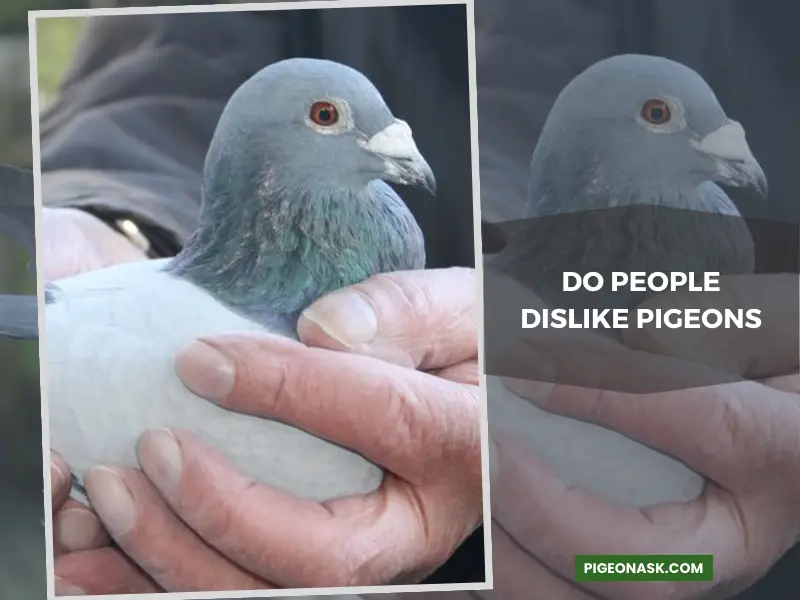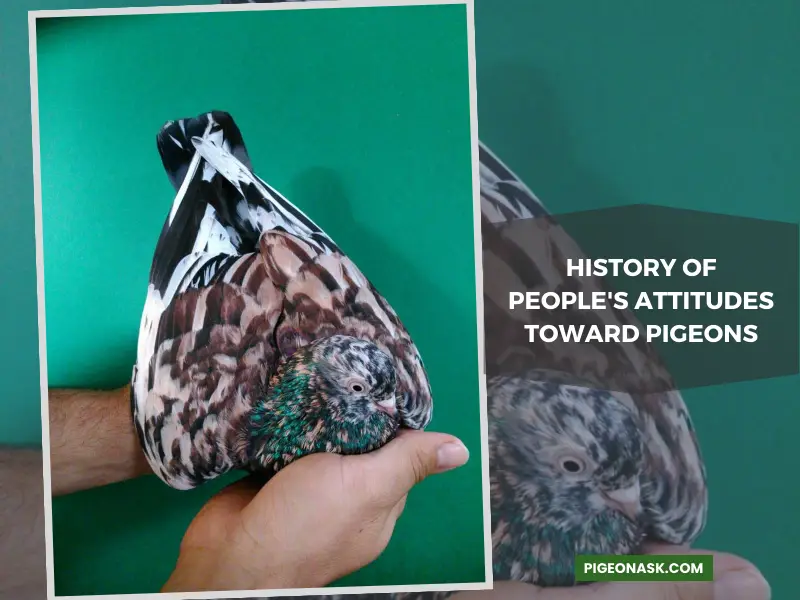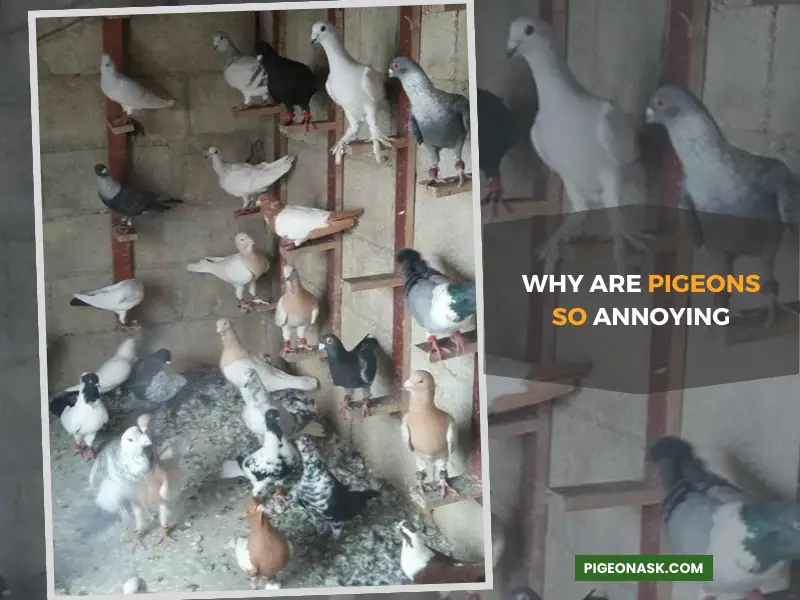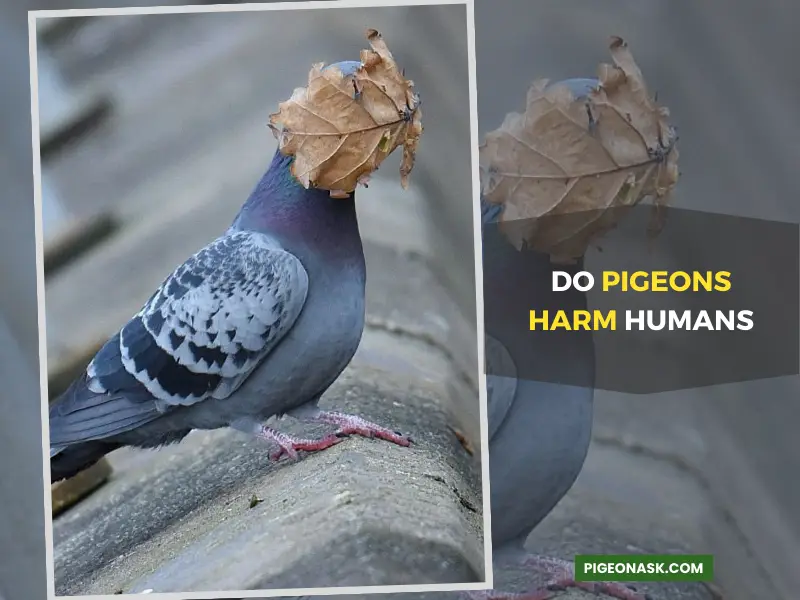Why Do People Hate Pigeons?
Pigeons have long been a source of interest and annoyance for those who live in cities. And the pigeons and people have coexisted for ages, frequently in a love-hate relationship, anywhere from the busy streets of New York to the historic plazas of Rome.
With their iridescent feathers and cooing calls, we understand why they might be adored, but why do people hate pigeons? Pigeons are linked to urban annoyances like droppings and noisy cooing. There are worries about diseases, even though the risks are usually overblown.
Also, pigeons compete with other animals for food and nesting spots. Since they thrive in cities and gather in groups, many see pigeons as pests. To figure out why people have mixed feelings about pigeons, we need to look at their long history and how they live alongside humans.
Looking for more articles about pigeon blog
Do People Dislike Pigeons?
Ever since cities were developed and became the most densely populated areas of most countries, pigeons have lived alongside humans in these cities as pests.

Pigeons are now seen as urban pests, as they travel in large numbers and leave droppings everywhere.
Here are the main reasons why people have grown to dislike pigeons –
Public Nuisance
Pigeons frequently leave numerous droppings everywhere they go since they fly in flocks, even on balconies, sidewalks and automobiles. These excretions are not only disgusting but also extremely unhygienic, which makes people angry.
Due to the constant mess they leave, street cleaners have an added burden whenever they clean, along with car owners, people who live in apartments, and more.
Moreover, the droppings can also cause structural damage, adding to costly repairs and cleaning. Pigeons may also build nests in unwanted areas, which also cause property damage.
Health Concerns
Most modern cities are now packed with cleaners who clean up the mess pigeons leave behind. However oftentimes, these droppings aren’t cleared and are left to spread diseases.
Pigeon droppings may carry pathogens that endanger human health, particularly if they come into touch with the skin. Disease outbreaks like histoplasmosis or Cryptococcosis may result from this.
Plus, pigeons scavenge their food from around the city. This can include dumpsters and trash cans. Due to this, many people view pigeons as unclean and dirty birds.
Noise
Pigeons have a habit of constantly cooing and flapping their wings, even if they aren’t trying to communicate something. When they do this around other pigeons, the others mimic the behavior.
This leads to loud noises that cannot be avoided even with the windows closed.
Competition with Other Birds
Pigeons can compete with native bird species for food and nesting sites, potentially affecting local ecosystems. This competition has caused negative perceptions among bird enthusiasts and conservationists, leading to pigeons being less favored as pets.
What Is the History of People’s Attitudes Toward Pigeons?
People have shifted their attitudes toward pigeons throughout history. The majority always adored pigeons, but today, they are seen as pests and are generally unwelcome everywhere they go.

Past
For instance, pigeons were worshiped alongside gods and goddesses in ancient Egypt, where they were regarded as deities. Many shrines and sculptures were erected to celebrate them since it was thought that they possessed sacred power.
Pigeons were then considered to be symbols of love and harmony in ancient Greece and Rome. This was before doves became the symbol of peace instead.
In the early Middle Ages, pigeons slowly became used as messenger animals. They were used to send letters to nearby recipients and even carry small pouches of food.
Present
As soon as urban areas were built and developed, pigeons became a nuisance for most people.
People have found pigeons to be very dirty and messy birds who leave droppings on statues, sidewalks, and even other people. So, they became associated with filth.
This perception was then amplified when pigeons started to be the cause of spreading diseases. Now, they are seen as urban pests alongside rats.
In fact, the term “Rats With Wings” has been used for pigeons for decades and has been mentioned in several movies.
Why Are Pigeons So Annoying?
What do pigeons do that are so bothersome that we know why they are so despised?

Pigeons irritate people nearby for a variety of reasons, in addition to droppings and noise.
Nesting Habits
Pigeons often choose buildings, rooftops, and other urban structures for nesting sites. Their nests can block gutters and vents, leading to potential structural damage and maintenance issues.
Food Scavenging
Pigeons are opportunistic feeders and will scavenge for food scraps in public areas, including parks and outdoor dining spaces.
Some people find their scavenging behavior annoying, especially if pigeons are seen as competing with other wildlife or creating messes.
Property Damage
Pigeons may peck at building facades or windowsills, causing minor property damage. Over time, this can lead to maintenance and repair costs.
Population Density
In some urban areas, pigeon populations can become quite dense, which can exacerbate the issues mentioned above and create an overall impression of pigeon-related problems.
Do Pigeons Harm Humans?
The question of whether pigeons may seriously hurt people has generated a lot of discussion. Pigeons can nevertheless increase people’s risk of becoming sick even if they are extremely unlikely to transmit or be the source of deadly infections.

Disease Transmission
Although pigeons themselves may not pose a direct hazard, their droppings can. The buildup of pigeon droppings, which can harbor germs, fungi, and parasites, is linked to these health problems.
Histoplasmosis and Cryptococcosis are two possible illnesses that might be contracted by coming into touch with polluted pigeon droppings.
It’s crucial to remember that most individuals have a minimal chance of developing these illnesses, which often manifest themselves after prolonged exposure to dried pigeon droppings in enclosed areas like ventilation systems or attics.
Environmental Impact
In some cases, pigeon populations can disrupt local ecosystems by competing with native bird species for resources such as food and nesting sites.
Disruption of any ecosystem can impact the overall feeding chain among animals.
This not only puts certain species of animals at risk but also overpopulates the pigeons, which adds to the problems caused by them.
Conclusion
In conclusion, people’s feelings about pigeons can vary widely, much like the cities they live in. Pigeons can be seen as both a nuisance and a symbol of resilience in urban settings.
So, the next time you encounter a pigeon, you might wonder, “Why do people hate pigeons?” and gain a new perspective on these city-dwelling birds.
References:
- https://nypost.com/2017/02/07/meet-the-mother-of-pigeons
- http://news.bbc.co.uk/2/hi/uk_news/magazine/6583217.stm
- https://www.nyc.gov/site/doh/health/health-topics/pigeon.page
- https://www.audubon.org/news/the-origins-our-misguided-hatred-pigeons
- https://www.jstor.org/stable/10.1525/sp.2008.55.1.72
